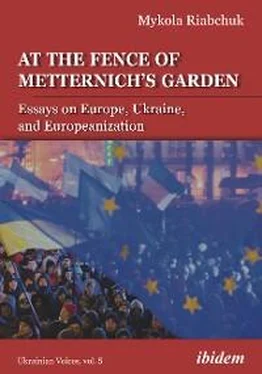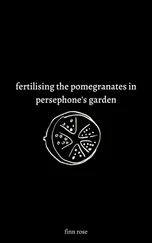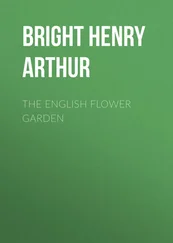In a recent examination of the correlation between a strong Ukrainian national identity, and adherence to democracy, market reforms, and westernization, Stephen Shulman concluded that the crucial factor was Ukrainians’ self-image. That is, Ukrainian nationalism claims that Ukrainians historically and culturally were particularly individualistic and freedom-loving.
Elite proponents of this identity typically contrast ethnic Ukrainians and Ukraine historically and culturally with Russians in Russia, a people and a country that are perceived to have strong collectivistic and authoritarian roots. At the same time, elite proponents of this identity argue that Ukrainians have much in common culturally and historically with Europe (…) [Therefore] democracy and capitalism symbolically raise the status of ethnic Ukrainians, spread the values alleged to be associated with ethnic Ukrainian culture throughout the country, and are more likely to function effectively in a country based on perceived ethnic Ukrainian values. Further, since the main ‘Other’ of this identity, Russia, is seen as having a history and culture estranged from individualistic and freedom-based development models, rejection of non-democratic and non-capitalistic models symbolically and actually maintains the perceived cultural distance between Ukraine and Russia and thereby reinforces the Ethnic Ukrainian national identity. Finally, precisely because European and ethnic Ukrainian culture are seen as close, and Europeans are associated with democracy and capitalism, these models are likely to be favored because they symbolically and actually reinforce the cultural similarity between these two peoples and elevate the status of ethnic Ukrainians in Ukraine as a core group [Shulman, 2005: 67].
The problem with this analysis, however, is that this type of identity has never dominated Ukraine—at least until recently. In a sense, it was a “minority faith,” as Andrew Wilson [1997] defined it, because it was repressed for decades by the Russian-tsarist and then Russian-Soviet state, which promoted imperial Russian/Soviet/East Slavonic identity.
Even though the correlation between language, identity and social/political attitudes disclosed by Shulman is not direct, it is statistically significant and useful for political prognosis as well as (alas) manipulation. Apparently, the highest level of national self-awareness and the strongest commitment to European integration and Western liberal-democratic values is to be found in the least Russified, western part of the country, while the lowest level of national consciousness and strongest Sovietophile, anti-Western attitudes can be found in the most Russified/Sovietized south-eastern regions. 3This creates a very strong temptation to conceptualize Ukraine simplistically in Manichean terms as a place with a ‘nationalist’ West and a ‘Sovietophile’ East.
During the Orange Revolution in Ukraine, the West—in both national and international terms—scored a victory. In geopolitical terms, Ukraine’s further European advance might be as important as Turkey’s. In one case, the whole Muslim world would see that “Islam is compatible with secular democracy” ( The Wall Street Journal, 8 February 2005). In the other case, the entire post-Soviet world, including Russia, will see that the Soviet legacy can be overcome, the post-Soviet “void of values” filled, and “disintegration of all levels of society” recovered from [Langer 2004].
The regime change that occurred in Ukraine at the end of 2004, and the EU enlargement that made Ukraine an immediate neighbor of the EU since May 2004, urged both sides to reconsider their relations in both practical and conceptual terms. The revision would not be a simple task since the ‘big-bang’ had been planned long ago, with all the adjacent policies and documents, while the Orange revolution occurred unexpectedly, at least for the Europeans, brining many more difficult questions than easy answers to the agenda.
Ukrainians may once again become the ‘unwanted step-children’ of some grand continental events, this time—of the Great East European Revolution that swept away authoritarian regimes west of Ukraine in 1989 but reached Kyiv only with a regretful 15-year delay. The new Ukrainian authorities are supposed to take a pragmatic stance vis-à-vis the EU. On the one hand, they could and probably should remain critical of the EU policy towards Ukraine, pointing out, exactly as their predecessors, its short-sightedness and duplicity. Yet on the other hand, they should accept the proposed programs and mechanisms of cooperation, however feeble and superficial, and—unlike their predecessors—make proper use of these programs, putting an end to a weird ambiguity, at least on the Ukrainian side.
In other words, they should put the ball in the EU’s court by completing all the required reforms and programs and exposing thereby the EU’s inadequate, biased and double-standard approach to Ukraine—as long as the EU denies Ukraine’s membership aspirations but accepts Turkish, Albanian, and Macedonian bids. At the moment, it seems to be the only option available for Ukrainians—to work hard, to improve the country’s image, and to press the West diplomatically with a hope that even the most reluctant Europeans will sooner or later run out of excuses for keeping a reformed and dynamic country outside.
It would take much time and even more effort from both Ukrainians and Europeans to come to terms with some simple truths and complicated reality. So far, the Ukrainian stance articulated by the President’s first aide looks quite measured and reasonable: “We agreed not to say ‘tomorrow’ while they [EU leaders] agreed not to say ‘never’.” It looks promising that the person assigned to coordinate Ukraine’s European integration began with sober self-criticism rather than anti-Brussels complaints and self-indulgence. “We have just entered the elementary school,” he reprimanded his fellow-countrymen half-jokingly, “and right away demand the university diploma!” ( Ukrayinska pravda, 21 February 2005).
The best answer the Europeans can make to this stance has been unofficially (as yet) formulated by the Polish President Aleksander Kwasniewski: “There is no argument not to open negotiations with Ukraine. The question is of time, of procedures, but not why or if” ( United Press International, 2 February 2005). Giscard d’Estaing and his colleagues may have a different opinion, but it is up to Ukrainians to prove they are wrong.
2005
1Quoted in “New Neighbourhood—New Association. Ukraine and the European Union at the beginning of the 21st century,” Policy Papers 6. Warsaw: Stefan Batory Foundation (March 2002): 11.
2As reported by Varfolomeyev, O. 2002. “The EU’s Unwanted Stranger?” Transition Online. July 12.
3Symptomatically, the geopolitical preferences of both Ukrainians and Russians in western Ukraine clearly differ from the geopolitical preferences of both Ukrainians and Russians in the east. In other words, “regional rather than ethnic affiliation determines geopolitical preferences” (Reznik, O. 2001. “Zovnishniopolitychni oriyentatsiyi naselennia,” in Vorona, V., Shulha, M. (eds.), Ukrayinske suspilstvo: desiat rokiv nezalezhnosti. Kyiv: Instytut sotsiolohiyi NANU: 243.
The term ‘Eurasia’ has many meanings but all of them can be subsumed under two main rubrics. The first is purely geographical, referring to a formidable landmass stretching from the Atlantic to the Pacific and considering Europe and Asia as a single continental entity, with the former as a peninsula of the latter. The second meaning is much more versatile but in all its multi-faceted representations it refers typically to a Greater Russia, to some space dominated historically by the Russian Empire and its Soviet (and post-Soviet) reincarnation. The term is rather political, cultural, and ideological than purely geographical. It entails not only the idea of Russian political dominance, whether justified or not, whether legitimate (in terms of mission civilisatrice and/or ‘liberation’ of neighbors from somebody else) or illegitimate (in terms of imperial conquest and subjugation). It also promotes the idea of the cultural/civilizational peculiarity of the region, suggesting that it is neither Europe nor Asia but some mixture of both that represents a separate and very special ‘Eurasian’ civilization. Its essence is Russian culture—but rather imperial than national. The common imperial past and some imprints of Russian imperial culture are the only thing that draws together the nations that otherwise are worlds apart in all possible terms, like the Ukrainians and Turkmens, or the Moldovans and Chukchi, or the Belarusians and Buryats. It would be rather impossible to pack them all into one bag if there were not a common denominator—a Greater Russia.
Читать дальше












